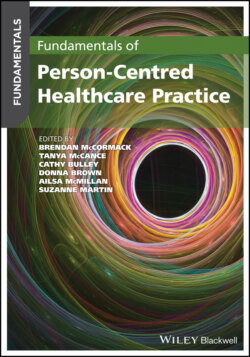Читать книгу Fundamentals of Person-Centred Healthcare Practice - Группа авторов - Страница 103
Standards for professional practice
ОглавлениеMany healthcare‐related roles are professionally regulated. This means that each profession is governed by an organisation known as a professional regulator. In understanding the meaning of professionalism, it is important to have an awareness of the role of professional regulators. Some examples are the American Dental Association, Health and Care Professions Council, General Medical Council, Malta Medical Council, Nursing and Midwifery Council, Nursing and Midwifery Board of Australia. The regulator for each professional group generally determines the standards for education and practice for that profession within a country or across a geographical region. On successful completion of a programme of education that is generally approved by a regulator, the names of individuals are added to a professional register. By having your name added to a professional register, you are agreeing to abide by the standards for that profession as set out by your regulator. Each professional regulator provides clear guidance about the required standards of practice, conduct and behaviour for members of the profession. This usually takes the form of a Code of Practice or Good Practice requirements.
It is important that you are familiar with the requirements for your profession in the jurisdiction where you will be licensed/registered. If you are interested in knowing more about professional standards please see:
www.nmc.org.uk/standards/standards‐for‐nurses
https://ed‐areyouprepared.com/wp‐content/uploads/2019/01/Nusing‐and‐Midwifery‐Board‐Code‐Advance‐copy‐Code‐of‐conduct‐for‐nurses‐Effective‐1‐March‐2018.pdf
www.hcpc‐uk.org/standards
www.gmc‐uk.org/about/what‐we‐do‐and‐why/setting‐the‐standards‐for‐doctors
https://policybase.cma.ca/en/viewer?file=%2fdocuments%2fPolicypdf%2fPD19‐03.pdf#phrase=false
